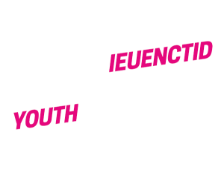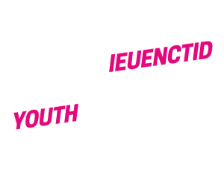Sustainable Ways: report summary
We heard from 1,300 young people about sustainable transport.
Key findings
We heard that:
- 2/3 of young people are conscious of the environmental impact of their chosen mode of transport but 72% of young people who answered the survey said they didn’t know that there were schemes in Wales to make using public transport more affordable for young people such as the MyTravelPass.
- 74% of young people said that they would take more public transport if it was free.
- Cycling was considered to be the least safe option when it came to active travel. 41% said they felt very or fairly safe when cycling.
- Many groups are marginalised from a positive public transport experience. Neurodiverse young people and disabled young people face significantly greater challenges on public transport such as a lack of ramps, lack of quiet carriages etc. A quarter of those from ethnic minorities feel unsafe on public transport.
Our conclusions
AWARENESS AND UNDERSTANDING
It is positive that so many young people are aware of the environmental benefits to sustainable travel, and how active travel can help their physical and emotional wellbeing.
We think that it’s astonishing that 72% of young people (and a number of fellow WYPMs) didn’t know that there were schemes in Wales to make using public transport more affordable for young people such as the MyTravelPass, even though so many of these young people reference cost as one of the main barriers to using public transport (which we will return to later in this report).
The Welsh Government need to take this figure into account, and work on how they market these schemes to make sure they are well known. We were surprised to see that adults also had little awareness of these schemes, which given how much of an impact parents, guardians, and carers have on young people’s travel choices is a cause for concern.
"A lot of the 'raising awareness' is in how the parents bring up their children and whether or not the parents understand the benefits of sustainable travel"
17 year old, Rhondda Cynon Taf
While a lot of young people also told us that places of learning were good at teaching them about the benefits of sustainable travel, we do feel that more can be done here as a large number of young people told us that places of learning were neither good nor bad at this.
Responses were generally a little more critical of how good places of learning were at communicating how to travel sustainably in the local area. We feel that there should be more emphasis on this in places of learning; lessons need to be relevant to the real world and to the local area - where young people are made aware of local routes, how to use different modes of transport, how they connect and the different schemes available to support them. We also feel that more work needs to be done outside of school to advertise and promote the benefits and the practicalities of sustainable travel in our local communities across Wales.
"I don't feel that ways to save money are displayed effectively enough. We need more ways to save money but also make sure that these are promoted further"
19 year old, Anglesey
AFFORDABILITY
It is clear that the fares are one of the biggest issues that stop young people from using public transport more than they do now.
The Mytravelpass scheme enables young people aged 16-21 to travel at a discounted rate, but more support is needed to encourage families to use the bus for instance, so that it’s a more affordable option for adults to travel with children and young people under the age of 16.
While we are supportive of the schemes that are already in place to make travelling by public transport less expensive, we ultimately believe that public transport should be free for young people under the age of 25.
We think this would encourage more young people to use public transport, and over time with word of mouth, young people would encourage their peers to do the same. This could also lead to behaviours being formed which will see young people continue to use public transport when they become adults.
"I agree the transport should be free and as for the why – I think it’s important to set-up healthy habits for the future because if young people get used to using public transport they’re more likely to carry on when they’re older. And then it almost pays for itself because if you’ve got more people using the service, so I think it’s a no-brainer really."
Elena Ruddy, WYPM - Partner Elected via the URDD
INFRASTRUCTURE, RELIABILITY AND AVAILABILITY OF PUBLIC TRANSPORT
It’s clear to us that public transport needs to reach further than it does at the moment, the frequency of these services need to increase, they need to be reliable and joined up, and journey times need to be shorter.
We feel that there is a growing negative perception associated with public transport, that it cannot be relied upon to get to places on time, which can have a big impact on young people when they need to get to places of learning, to work, or other important commitments. The challenge for those in rural areas is even greater.
"Improving and extending rail networks to cover more areas of Wales. It is good to know that Welsh Government are not building any new roads BUT costs saved need to be put into improving public transport in Wales and ensuring that this investment is seen and felt (by making services more reliable) by the public."
Parent/carer/guardian
Regardless of how well-meaning people are when deciding on how to travel based on the impact on the environment, if public transport continues to be seen as inconvenient then a big percentage of people will end up choosing options which they consider to be more convenient and safer like using a car.
In order to see the increases we are all hoping for in the number of people using public transport services, we fully agree that greater investment is needed. As Columbian politician Enrique Peñalosa once said, ‘an advanced city is not one where the poor have cars, it’s where the rich ride public transportation.’
We feel that more needs to be done to improve the experience for those neurodiverse young people and those with physical disabilities. Work needs to be done to make sure that everyone can access public transport conveniently, and services are designed to cater for these young people.
ACTIVE TRAVEL ROUTES
Active travel routes need to feel safer, and more convenient if more young people are going to consider it a practical way to get from A to B. As with public transport, to achieve this our feeling is that greater investment is needed.
We were surprised to hear from so many who said there was a lack of secure bike parking spaces in their area, and although consistent with some of our experiences, we were concerned to find that others find it difficult to park their bike at their places of learning too.
"It can be quite difficult to have somewhere to put your bike when you get to school or college. I know for instance that some of my friends used to cycle to school and they had to put it in the janitors closet. There’s no sort of bike stands or anything."
Kasia Tomsa, WYPM - Blaenau Gwent
SIGNAGE, TICKETING, AND TIMETABLING INFORMATION
It is clear to us that improvements need to be made so that young people can access the information they need to plan their journeys, and that information needs to be easy to access and navigate even when they are looking to use multiple modes of public transport and active travel to get to their end destination.
The challenge is to move people from using cars which many people have access to, can decide exactly when to use, the route they take, the music they listen to and so on. Using the words of what one young person told us, ‘convenience is key’ to increasing the amount of young people traveling sustainably, and being better at providing clear, accessible information can help narrow that gap.
We’ve spoken previously in this report about the need to make public transport more reliable, but at those times where changes to arrival times occur, people need to be able to access that information easily and quickly.
Whilst we don’t think that it’s one of the bigger barriers, we do believe that every little helps in encouraging people to use more sustainable ways of travel, so with that in mind we think that action should be taken to better integrate ticketing across multiple modes of public transport to make the process slicker and easier for young people
DISCRIMINATION AND ABUSE
It is extremely saddening to hear that young people are experiencing discrimination, and in the context of our work on sustainable travel, that it’s stopping some young people from using public transport.
Young people need to be able to travel safely and freely, and steps need to be taken to tackle discrimination, bullying and other kinds of anti-social behaviour for an inclusive society, and to encourage greater public transport use.
OUR RECOMMENDATIONS
What do we want to see change?
We call for:
1. Places of learning to put a greater emphasis on improving young people’s understanding of the practicalities of how they can travel sustainably in their local area.
2. An increase in efforts to promote sustainable travel, and schemes like Mytravelpass.
3. The introduction of free public transport for people under the age of 25.
4. The introduction and effective promotion of schemes to support young people to access equipment like bikes.
5. Greater Investment in our public transport services, with a focus on:
- Expanding public transport routes
- Increasing the frequency of services
- Ensuring that services are reliable
- Reducing journey times
6. Improved connectivity between different modes of sustainable travel.
7. The removal of barriers facing different groups including neurodiverse young people and those with physical disabilities.
8. Greater investment on active travel routes, with a focus on improving safety and accessibility. Specifically we would like to see:
- a greater number of bike, walking and wheeling paths
- more segregated bike lanes
- improvements to the condition of paths and pavements
9. An increase in the amount of secure bike parking facilities in communities, and particularly in places of learning.
10. Improvements in how information regarding public and active travel is made available and communicated, making it more accessible, so that it is easier to see how various modes of travel can be used to get to the end destination
11. Improved provision of real-time information to show the progress of and updated arrival times for public transport, on those times when there are delays
12. Provide a ticketing option which enables young people to use across multiple modes of public transport
13. A co-ordinated campaign to reduce anti-social behaviour and discrimination against marginalised groups of young people, and for places of learning to support within the delivery of the Curriculum for Wales.




